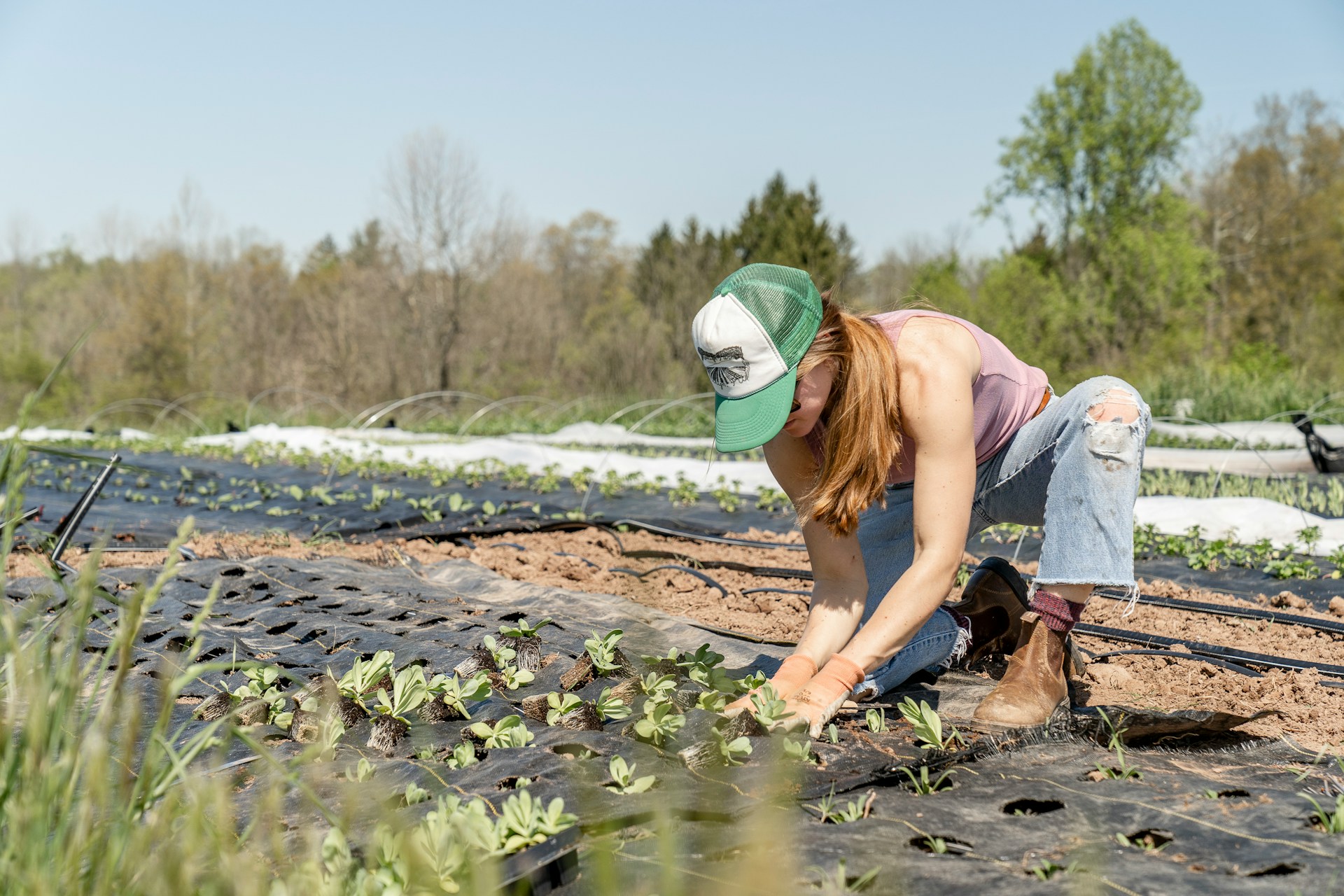
Today, the intersection of technology and agriculture, known as Agtech, is crucial for addressing food security. As the global population continues to rise the demand for food increases, putting pressure on agricultural systems to produce more with less. Agtech innovations, for example; precision farming, data analytics, and automated machinery, enable farmers to optimize resource use, enhance productivity, and reduce environmental impact.
The Importance of Sustainable Agricultural Practices
Sustainable agricultural practices help preserve our ecosystems to ensure long-term food security. Practices such as crop rotation, organic farming, and the use of renewable resources, help maintain soil fertility minimizing the negative impacts of farming on the environment, such as soil degradation, water pollution, and loss of wildlife habitats.
Here’s Why Bayer, Deere, and ICL Group are Leading the Agtech Industry
Due to their groundbreaking contributions to sustainable agriculture, we have chosen Bayer, Deere & Company, and ICL Group, as exemplary leaders in the Agtech industry: Deere & Company leads with its precision agriculture technology, revolutionizing farming efficiency and productivity. Bayer Crop Science stands out with its Climate FieldView platform, offering comprehensive data integration and advanced analytics that empower farmers to make informed decisions. ICL Group excels with a wide selection of Agtech tools providing farmers and agronomists with data-driven insights, recommendations, and solutions. ICL’s innovations drive increased productivity, sustainability, and profitability in agriculture.
#1 Bayer Crop Science
Bayer stands out in digital farming with its Climate FieldView™ solution, a comprehensive data integration and analysis platform. FieldView enables farmers to seamlessly collect, store, and analyze data from various sources, providing a holistic view of farm operations. Advanced analytics such as field health imagery analysis and variable rate prescriptions, powered by data science and AI, generate actionable insights and support data-driven decision-making.
FieldView’s seed scripting technology, leveraging data from Bayer’s extensive research plots, offers optimized seed planting recommendations tailored to specific field conditions, maximizing yield potential. The platform also promotes open data sharing, allowing collaborative decision-making with agronomic partners, and boasts a global presence, enhancing its impact on sustainable agriculture worldwide.
#2 ICL Group
ICL Group, a leading global specialty minerals company, is at the forefront of Agtech innovation with its series of digital solutions and the Planet Startup Hub accelerator program. By way of these initiatives, ICL is increasing yields, reducing environmental impact, and driving sustainable agriculture. The Agmatix platform uses AI to standardize agronomic data and provide actionable insights for optimizing crop nutrition and sustainable farming practices.
The Growers platform is an open digital marketplace, linking farmers with ag retailers and manufacturers, facilitating the efficient use of inputs for profitability and sustainability goals. ICL’s Planet Startup Hub supports innovative Agtech and foodtech startups, focusing on next-generation fertilizers, biostimulants, alternative proteins, and AI-driven solutions. Tools like AngelaWeb 2.0 and the Nutrient Deficiency Guide, empower farmers with precise recommendations to enhance crop quality and productivity, while the PeKacid Advisor App and Polysulphate E-learning tool, provide valuable insights into foliar applications and sustainable fertilizers.
#3 Deere & Company (John Deere)
Deere has established itself as a frontrunner in the agricultural machinery and precision agriculture technology sectors. Their state-of-the-art GPS guidance systems such as AutoTrac and StarFire, modernize farming efficiency. When applying inputs, like fertilizers, pesticides, and seeds, these systems minimize overlaps which can reduce input costs by up to 10%. Furthermore, the accurate guidance allows operators to work at higher speeds, covering more ground per hour, and fully utilizing the width of implements, thus boosting productivity by up to 18%.
Deere’s automated steering technology reduces operator fatigue and enhances efficiency in low-visibility conditions. Additionally, the integration with data collection tools facilitates precise mapping and analysis, enabling data-driven decision-making and controlled traffic farming, which improves yields.
In Summary
The Agtech industry is poised for a future of transformative growth driven by innovations that integrate advanced technology with sustainable farming practices. Emerging trends include the increased use of artificial intelligence, machine learning, and big data analytics to optimize farming practices, reduce waste, and enhance productivity. Autonomous machinery and precision agriculture tools will become more sophisticated, enabling farmers to manage their fields with unprecedented accuracy and efficiency.
Leading companies like Bayer, Deere & Company, and ICL Group, are at the forefront of this Agtech revolution, driving a more sustainable future with their groundbreaking innovations. Bayer’s Climate FieldView™platform leverages advanced data integration and analytics to empower farmers with actionable insights for better decision-making. Deere & Company’s precision agriculture technology, exemplified by their GPS guidance systems, enhances farming efficiency and productivity. ICL Group’s suite of Agtech tools, including the Agmatix platform and AngelaWeb 2.0, provide farmers with data-driven insights to optimize crop nutrition and improve yields. Together, these companies are setting new standards in sustainable agriculture, ensuring a healthier planet and a secure food supply for future generations.
With our growing populations, Agtech will continue to play a crucial role in ensuring food security with advancements that simultaneously boost agricultural output while promoting environmental stewardship.
